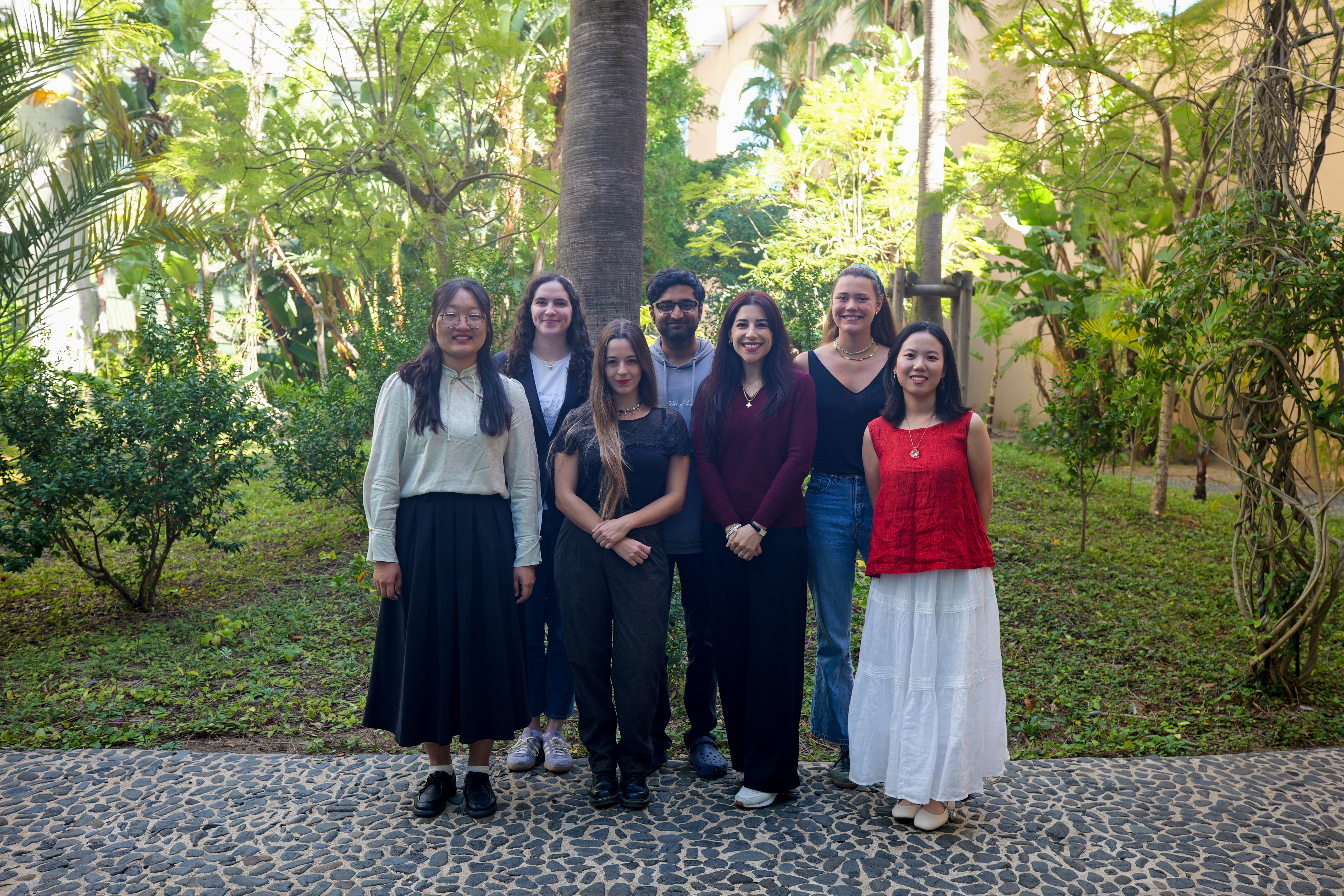20 November 2025
These four selected projects will receive more than €1.75 million in support. This funding underscores the commitment of the “la Caixa” Foundation to champion projects of unparalleled excellence that stand to significantly benefit public health.
Listed below is more information about the four awardees from CF and GIMM, and their projects.
18 November 2025
A welcome beyond borders
When Diego Carrasco first saw Lisbon from the air fifteen years ago, the city looked like a watercolour: terracotta rooftops glowing above the Tagus River. “I remember seeing the roofs from the plane,” he says. “It was so romantic. I thought this city is so old, and at the same time, so new.”
It was 2010, and Carrasco, a young Colombian doctor, had been selected to come to Portugal through a government programme that invited Latin American doctors to work in Europe. “I felt welcome from the very beginning, as it was the government itself that had opened the door.”
18 November 2025
A community to carry you through
When we decided to discuss the “welcoming internationals” theme, Mert Erginkaya was among the first names that came to mind. Mert has been a close friend for over six years, and I’ve always felt he represents the Champalimaud Foundation (CF) community at its best. This piece is his story and, in a way, a bit of mine, because I was lucky enough to be part of Mert’s CF journey.
14 November 2025
Where Science Met the Kitchen
It was Friday evening, November 7th, and the entrance hall of the Champalimaud Centre for the Unknown didn’t look like itself. Where one would normally expect calm and quiet, the space pulsed with energy, the clinking of pots, the low hum of conversation, the scent of coriander, roasted pumpkin, and the promise of so much more.
06 November 2025
How Scientific Collaborations Can Help Better Understand the Brain and the Body
Historically, scientists studying the brain, like neuroscientists and psychologists, worked separately from those studying the body, such as endocrinologists and physiologists. Research on how the nervous system interacts with the body has been growing, but “it kind of stops there, rarely making it past the neck to reach the brain again”, as Carlos Ribeiro puts it. Neuroscientists, meanwhile, often focus on higher brain functions without considering how body signals might influence them.
27 October 2025
A Nose for microbes: how hunger tunes the brain
Fermented clues
Cheese and chocolate might not tempt a fruit fly’s palate, but to a hungry fly short on nutrients, their smell carries a hidden signal. When deprived of certain amino acids – the building blocks of protein – these tiny insects develop a surprisingly refined sense of smell that helps them track down not just food, but specific bacteria living in fermented foods.
23 October 2025
Delving into safety, regulation, therapeutic practices and future directions of psychedelic-assisted care
“I was a psychedelic teenager. Then, at 18, I had a bad trip with LSD, and became very paranoid”, explained Jules Evans to his audience at the event that took place at Champalimaud Foundation, at the beginning of the month, under the title “Psychedelic Therapy: From Evidence to Equity”. Today, Evans is the founder and Director of the Challenging Psychedelic Experiences Project, the leading resource for post-psychedelic difficulties and what helps people recover from them.

